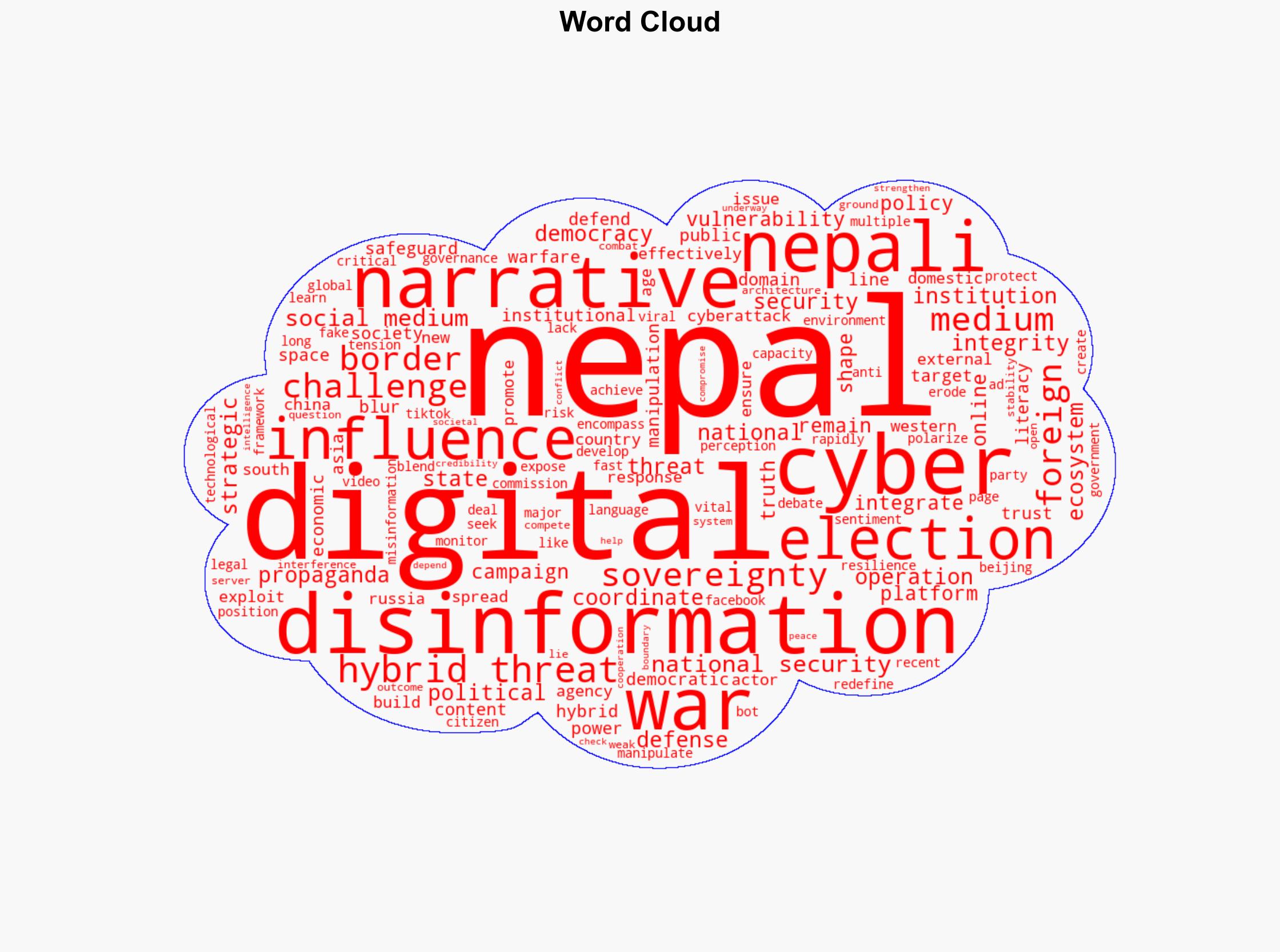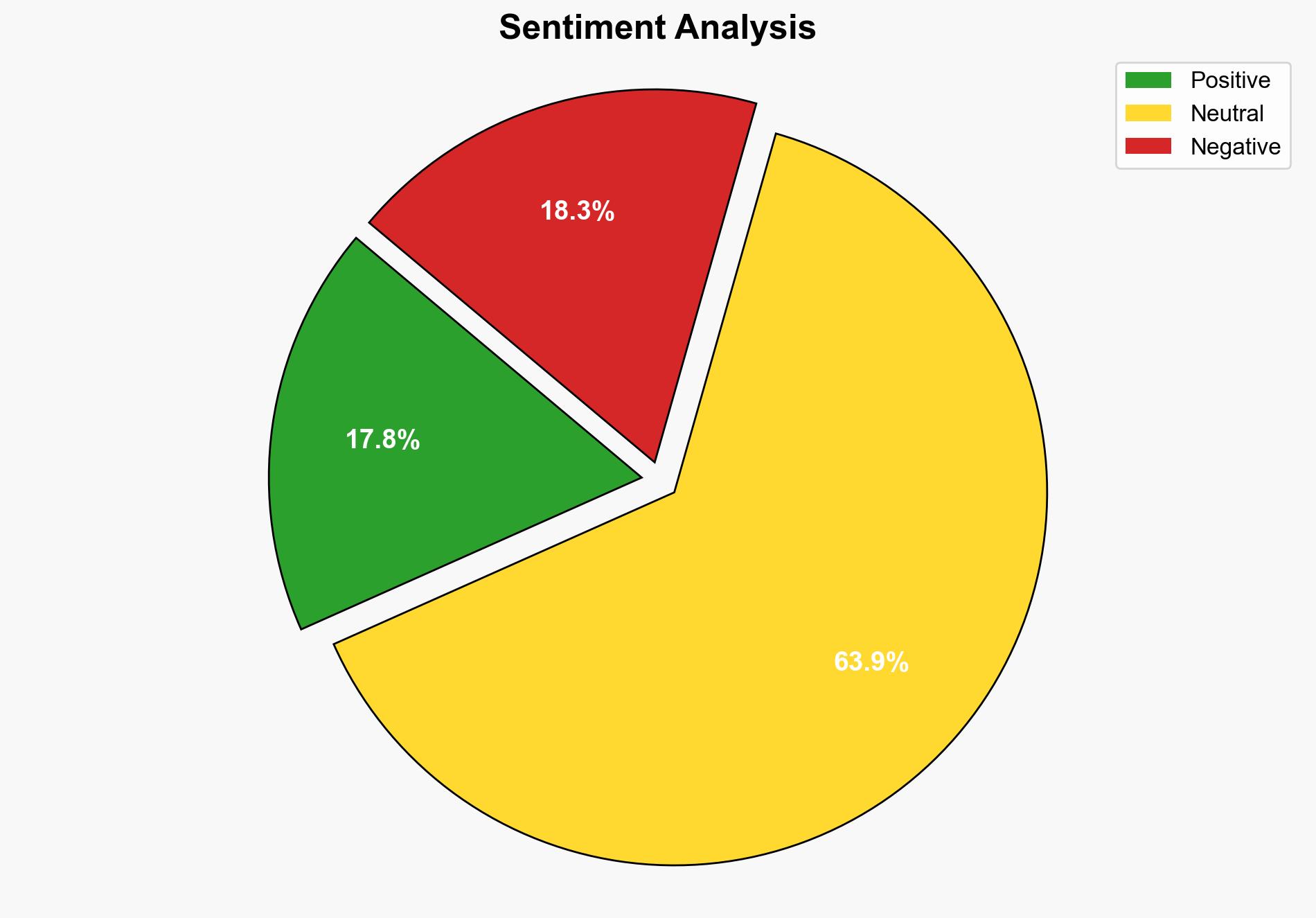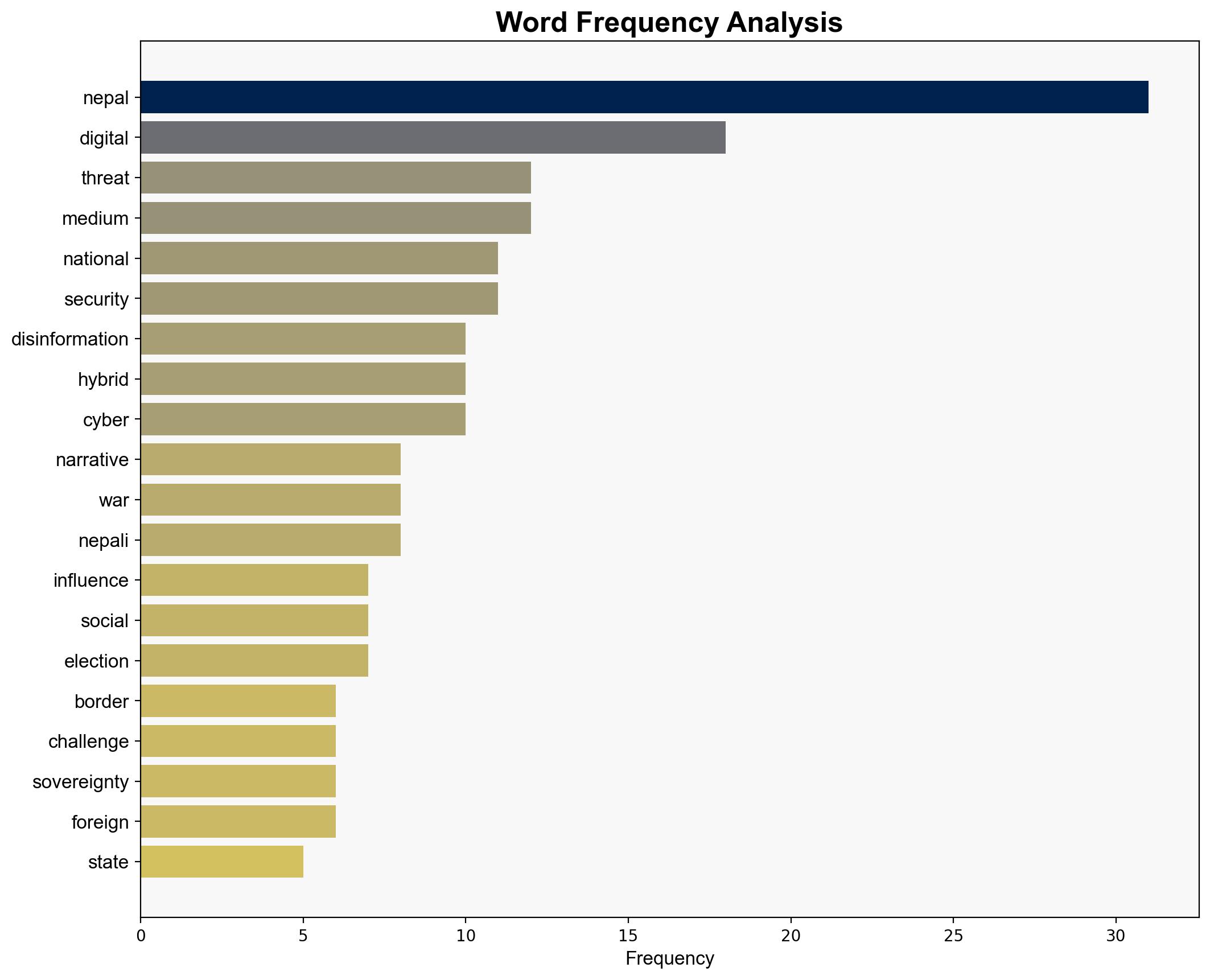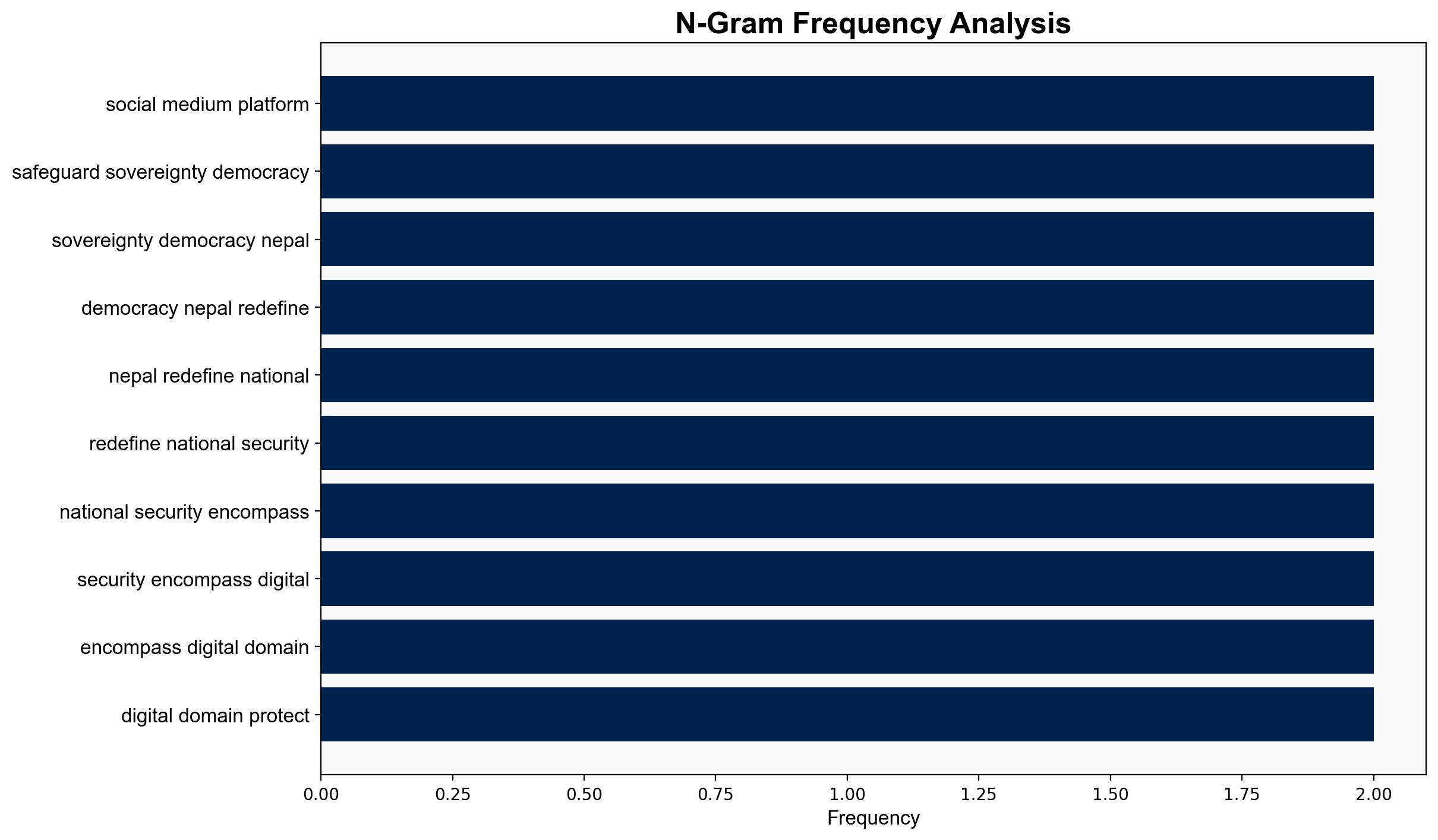Disinformation and Hybrid Threats – Khabarhub.com
Published on: 2025-11-08
Intelligence Report: Disinformation and Hybrid Threats – Khabarhub.com
1. BLUF (Bottom Line Up Front)
The strategic judgment indicates a high confidence level that Nepal is increasingly vulnerable to hybrid threats, particularly disinformation campaigns orchestrated by foreign actors such as China and Russia. The most supported hypothesis is that these campaigns aim to manipulate public perception and influence Nepal’s political landscape to align with foreign strategic interests. Recommended action includes enhancing digital literacy, strengthening cyber governance, and developing robust legal frameworks to counter disinformation.
2. Competing Hypotheses
1. **Hypothesis A**: Foreign actors, primarily China and Russia, are actively engaging in coordinated disinformation campaigns in Nepal to promote their geopolitical narratives and undermine Western influence.
2. **Hypothesis B**: The rise in disinformation in Nepal is primarily driven by domestic factors, including political fragmentation and inadequate digital literacy, with foreign influence being a secondary factor.
Using the Analysis of Competing Hypotheses (ACH) 2.0, Hypothesis A is better supported due to the presence of specific foreign narratives and the strategic interest of China and Russia in the region. Hypothesis B lacks direct evidence of foreign disinterest and is less consistent with observed patterns of foreign media activity.
3. Key Assumptions and Red Flags
– **Assumptions**: It is assumed that foreign actors have the capability and intent to influence Nepal’s digital space. Another assumption is that Nepal’s current digital infrastructure is insufficient to counter these threats.
– **Red Flags**: The lack of concrete evidence linking specific disinformation incidents directly to foreign actors could indicate potential bias or overestimation of foreign influence.
– **Blind Spots**: There may be underreported domestic sources of disinformation that are not fully accounted for.
4. Implications and Strategic Risks
The implications of unchecked disinformation include erosion of public trust in democratic institutions, potential destabilization during electoral processes, and increased geopolitical leverage by foreign powers. Strategic risks involve economic repercussions from misaligned foreign policies and cyber vulnerabilities that could be exploited in future conflicts.
5. Recommendations and Outlook
- Enhance digital literacy programs to empower citizens to critically evaluate information.
- Develop and implement comprehensive cyber governance and accountability frameworks.
- Strengthen legal measures to monitor and counteract disinformation campaigns.
- Scenario Projections:
- **Best Case**: Successful implementation of counter-disinformation strategies leads to increased public resilience and reduced foreign influence.
- **Worst Case**: Failure to address disinformation results in significant political instability and foreign manipulation.
- **Most Likely**: Gradual improvement in digital literacy and governance reduces but does not eliminate foreign influence.
6. Key Individuals and Entities
– No specific individuals are mentioned in the source text.
– Entities of interest include Chinese and Russian state-backed media networks and social media platforms like Facebook and TikTok.
7. Thematic Tags
national security threats, cybersecurity, counter-terrorism, regional focus





